Support TFG by using the links in our articles to shop. We receive a small commission (at no extra cost to you) so we can continue to create helpful free content. We earn from qualifying purchases made to the featured retailers. Thank you, we appreciate your support!
Emergencies happen. People get sick, injured, there are vehicle accidents, we fall and break arms and legs. None of them are easy to deal with but there are ways to make things easier.
While the chance of an emergency isn’t contingent upon age, being an older adult makes it more likely to have medical conditions that could require emergency treatment. Here are some tips on how to stay healthy while traveling and dealing with emergency medical situations abroad!
How to Stay Healthy While Traveling
Written by: Phebe Schwartz
Before You Go
Before you travel, talk to your doctor(s).
If you take medications for any chronic conditions, be sure you have enough medications for your trip. Carry your prescriptions with you as well, so Customs agents know a doctor prescribed these. Most insurance companies will let you have a three-month supply if you pre-request this, so contact your pharmacy plan. If you are traveling for longer than that, you’ll need a contact to get your meds and ship them to you. (I’ll cover this in another article.)
Save space by using pill bags or compact pill case for short trips.
Get your medical records copied.
If you have an on-going medical condition, get your medical records copied from your doctor – scanned! Copy these onto a flash drive, phone, tablet, etc. Always email yourself a copy just to be sure. You need to be able to get to these records, so back up the backup!
Consider a medical alert bracelet.
Consider a medical alert bracelet, especially if there’s any chance you might lose consciousness, have a seizure, or be unable to talk due to your illness.
Medical Alert Emergency ID Bracelet
Carry an Epi-pen.
If you have major allergies (bees, nuts, mangoes – me!) where you go into anaphylactic shock, carry an Epi-pen. Or four. Be prepared to use it. If you travel with someone else, make sure they have a back up pen for your use, and that they’re prepared to use it on you. Each Epi is good for about 20 minutes, so you might need to use another one, depending how long it takes to get to a care center.
Always be prepared.
If you are diabetic, obviously you know to carry your insulin, be prepared by blood sugar lows, and all that. ALWAYS be prepared.
Know the usual treatment.
Know the usual treatment for your condition, allergy, illness. And be ready to discuss this with a doctor.
For serious conditions consider carrying a card in your wallet stating your medical details in various languages or even an emergency translation card.
Epinephrine Auto Injector Case
Carry emergency contact information.
Carry emergency contact information in your wallet or purse. (A plus if they can speak the local language to where you’re traveling.) And, obviously, carry health insurance cards.
Get travel insurance.
This is a biggie – get travel insurance that covers your medical treatment. Most medical insurance policies cover emergencies ONLY in foreign countries, but you need to talk to your insurer. For those on Medicare, they DO NOT cover you overseas, so definitely get insurance. (Most travel insurance will deny coverage of pre-existing conditions, but will cover such conditions if they are normally controlled. Read policies carefully before you buy.) Be sure the insurance covers airlift to medical care if needed.
Editor’s note: I recommend Travel Guard. They were fantastic when I got a skin infection in Southeast Asia on my RTW trip. They reimbursed me $800 worth of medical bills without any difficulty. Just keep the receipts!
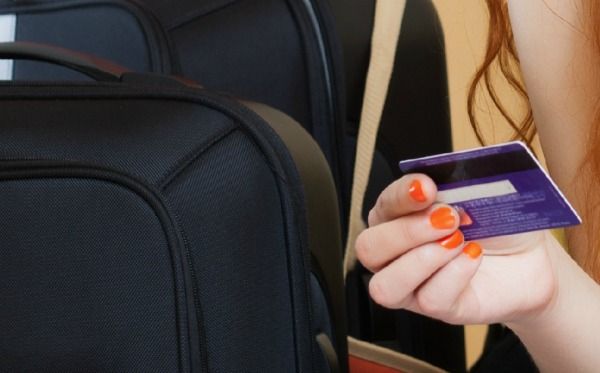
Always carry a credit card
Finding Health Care on the road
- When you have a health emergency, you need care immediately. Do what you can (Epi-pen, insulin, heart meds, etc.) and then get to a doctor or hospital.
- Your hotel, hostel, host can direct you to the closest and/or best facility. They may send someone with you for translating, if necessary.
- If your emergency starts at a restaurant, someone there can help with hospital information.
- If your emergency begins on a plane, tell the flight attendant. They’ll announce that they need a doctor. (Yeah, happened to me.) On a train or boat, find someone in charge and tell them you need care NOW.
- Have the local person explain to a taxi driver where you need to go, and to go there FAST!
- The alternative, in major emergencies like a heart attack or stroke, is obviously an ambulance. More expensive, but worth saving your life.
- For minor, less emergency care, pharmacists can be very helpful. In some places, they provide prescriptions as well as bandages, etc.
- Travel guide books usually list the location of medical facilities in various destinations.
At the Emergency Room
- If you can’t breathe, let the person at the desk know. They usually deal with you right away.
- There will be forms. It seems to be forms first. Have your glasses and a pen ready, fill out the forms.
- If you used any meds on yourself, show them to the doctor. Explain the situation, what you did, what your doctor said you need in this situation. Be assertive.
- If you have other conditions that might be adversely affected by care, let them know. For example, maybe you ate a food you’re allergic to but also have asthma (me) – tell the doctor so they are prepared.
Editor’s note: Read my story about how I had an allergic reaction to a medication in a Thai emergency room – and no one could understand me. Now I always carry a card with a translation!
Accidents
- Vehicular accidents are common, unfortunately. Keep an eye on the sanitation of the room in which you are treated, if you can. This is essential if you have lacerations.
- Call the police, ask for a police report, and get a copy – be insistent. Your insurance company will want this.
- Be prepared for care that isn’t what you are used to. And be polite if you need to ask for a clean needle, or clean gauze pad, or whatever.
- Be assertive, but polite. Insist on testing if you think you need it. Insist on antibiotics if you have deep or numerous cuts. Your health is in your hands too.
- Be prepared to pay up front, and then send your receipts and everything to your insurance company or companies. Some companies have representatives abroad, so call them and they can often assist you. (They may be able to help you find a hospital, but in an emergency sometimes you just want to get to the closest or best place.)
- As a last resort, call your embassy. They can’t always help, but they may be able to assist you.
- Carry a credit card (and don’t forget to let them know where you’ll be traveling)!
Author’s note: I was inspired to share these tips with you because I have a mango allergy and accidentally ate some last night. My husband ran and got the Epi-pen for me, and I stabbed myself with it. I ended up going to two hospitals, first one said they couldn’t deal with my situation. Second hospital was great, and I was able to explain to the (French) doctor what the usual procedure for my allergy would be in other places. Went through the treatment, and was able to pay up front and leave in 4 hours.
The other group of tourists there were two young people who had been in a motorcycle accident, and were having major problems. They and their friends were trying to contact the young man’s parents who speak only German, get him the care he needed (multiple fractures and lacerations), and no one had enough money or credit cards to cover the care.
Plus they had the accident on an isolated island, the hospital there was unable to help them much, and they spent a day on ferries and buses getting back. NOT what you want to do when you have broken bones. They all had travel insurance, but weren’t prepared to have to pay now and be reimbursed later. Make sure you have that emergency credit card or money set aside just in case.
So while you don’t want to spend your travel time worrying about emergencies, you also want to be prepared in case they happen. So you can go back to enjoying your travels!
What are your tips on how to stay healthy while traveling? Share in the comments!
For more travel tips, please read:
- Safe Travel Essentials: Will these 5 Products Help You?
- How to Keep Your Passport Safe While Traveling
- Antitheft Travel Bags for Women
- How do you Keep your Stuff Safe?
I hope you liked this post on how to stay healthy while traveling. Please share with your friends on Facebook, Twitter, or Pinterest. Thanks for reading!

Author Bio: Phebe Schwartz started traveling and living overseas at age 19, and haven’t stopped. Her career has included two years in Africa with the Peace Corps, and a three month trip home from there. As a result of living in Liberia, West Africa, she found a job teaching art in the US Virgin Islands, where she spent 25 wonderful years. Now retired, she and her husband are just traveling the world and having the time of their lives; the plan is to have no plan, the philosophy is that where they end up is where they are meant to be. Follow their adventure at their travel blog: Rolling Luggagers.

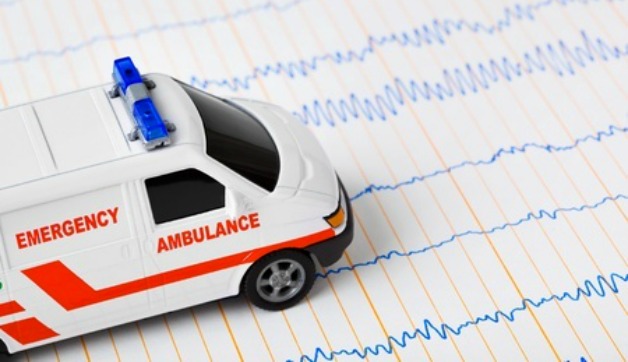
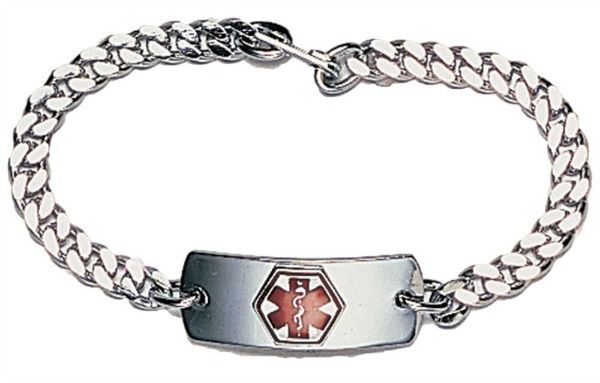
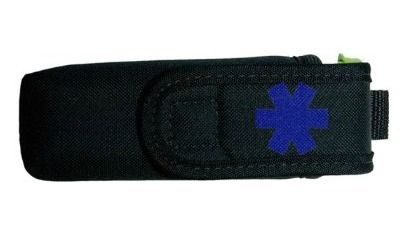

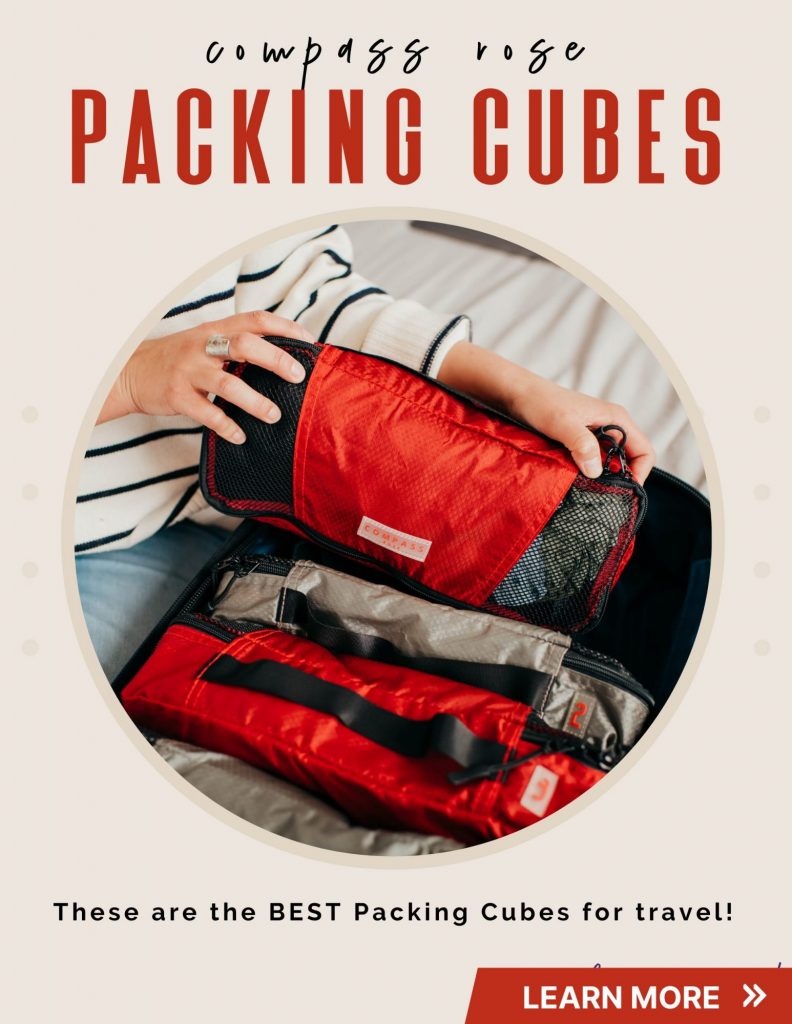






Great info and will save for my next trip!
I always carry an emergency pack of antibiotic tablets (from my doctor’s prescription) as I have had a tendency to get a bladder infection at the worst times. On a 12 week trip to Europe some years ago, I caught a cold in Paris, that became bronchitis by the time we had moved on to Italy via Germany and Prague ( about 4 weeks later). I contacted our son, who is a doctor in emergency medicine, and he said that, while the ABs were not specific to chest infections, it was worth trying. I started improving within 24 hours and the infection cleared very quickly. I spoke to my GP about this later, and he was happy for me to take a ‘general purpose’ type of AB on these long trips, in case I was unable to see a doctor easily. I have done this since, but never had to use them.
An additional note re costs of a stay/treatment in hospital: before we travel overseas, we always increase the limit on a credit card by as much as allowed (usually double for us these days) to cover emergency treatment/stays. When we come home we revert to the original level. We’ve never had any trouble doing this when we explain the situation to our bank (as we also give them an outline of travel plans to cover possible fraudulent use of cards). This extra bit of security, along with insurance, makes us feel more relaxed.
Wow that sounds horrible! Did you have travel insurance? I’ve never thought about extending my credit limit to the max I always do the opposite in case my card gets stolen. However, this makes sense in case of an emergency. Thank you for sharing your story!
I would also recommend having a data/call plan on your phone if possible (and you’re travelling somewhere urban). I cut my foot pretty bad while in NYC this summer and my phone was the only way I was able to quickly find an open clinic (only other tourists stopped to help me). I’m glad that I didn’t have to pay roaming charges on top of the medical bill for stitches.
Thanks Melissa Great tip!
These are great tips. Thanks
Leonie ♥
Thanks Leonie!